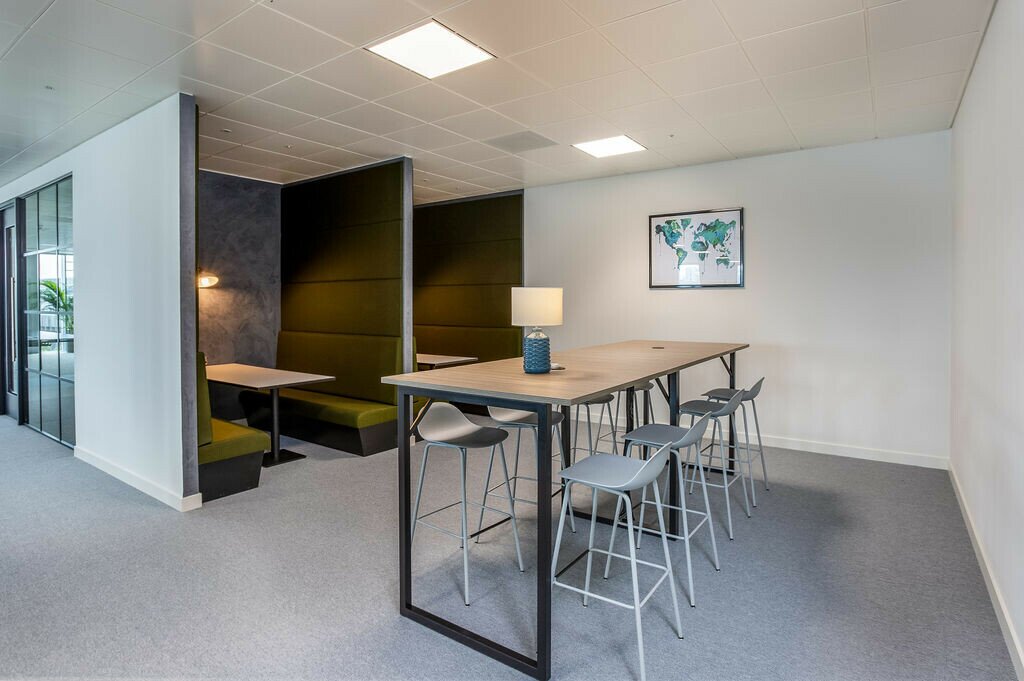After more than a year of workers being advised to work from home, September has marked the start of a widespread return to the office. But with businesses across the country adopting new hybrid models of working, the office market is in a state of flux.
Companies are downsizing, upsizing, and resizing their office footprint as they reassess how space will be used in a post-pandemic work environment. And as occupiers look around for premises that meet these new needs and landlords look to satisfy an increasingly varied set of requirements, a new form of ready-to-go office space could play a vital role in fulfilling this demand. Nonetheless, many businesses will continue to require a traditional office set-up, while others will look to the serviced office and flexible workspace markets. Flexible office specialist Workthere reported a 48% increase on pre-Covid levels in enquiries for flexible office space in the UK. Even larger corporates see the appeal, with Goldman Sachs recently signing a membership agreement for a floor at WeWork in central Birmingham. Given today’s real estate climate, this is not surprising: short-term leases mean space can be reconfigured without delay, allowing flex providers to capitalise on the current changing nature of office work.
However, a middle ground is needed to bridge the gap between flexible workspace and traditional offices, and it is in this space that ‘Plug and Play’ offices are set to thrive. Plug and play offices offer fully fitted and typically high-quality office space that is ready to occupy. Tenants can occupy a plug and play space in no time at all, without the hassle and upfront capital associated with fitting out new premises. Leases tend to be shorter and more flexible, too - an easy win for employers looking for a ‘quick fix’ new work environment, or a stepping stone as they work out a longer-term strategy.
The plug and play fit-out is becoming mainstream within the office market, acting as an alternative to traditional long-term leasing, yet feeling slightly more familiar than a fully-fledged flex approach. Likewise, for serviced-office tenants looking to move from a shared to a private space, either due to concerns around Covid-19 or because space requirements have changed over the last 18 months, these spaces are the missing link. The rise of plug and play is in line with the needs of occupiers, post pandemic. The flexible office market is undergoing an uptick in activity, but these spaces suit some businesses more than others. A company could not, for instance, work its branding into a flex space, whereas plug and play offices do allow for this, in some capacity. For companies looking for more flexible terms than a conventional lease, plug and play could be the answer.
Increasingly, landlords are introducing plug and play in a bid to be as tenant friendly as possible - differentiating or enhancing an existing office offering and enticing new tenants with stylish, turn-key solutions. At The Future Works in Slough, the new plug and play floor is in addition to both a flexible working offer and traditional office space. So, occupiers have a range of options to suit different business needs and hybrid working styles, whether they’re after a conventional long-term lease, looking for serviced offices or co-working space, or in need of something in between – like plug and play.
The high-quality, design-led workspace has been curated to appeal to today’s workers, offering dedicated spaces for various activities - client meetings, breakout sessions to collaborate and brainstorm, Zoom calls, and so on. Occupiers also have access to the building’s top-class amenities including a 3,100 sq ft roof terrace – helping to entice employees back to the office.
Now more than ever, occupiers need attractive offices that will appeal to new recruits and encourage existing staff to swap the living room for a meeting room. Plug and play spaces can meet this need, providing businesses with a ready-to-go solution to post-pandemic office requirements.
